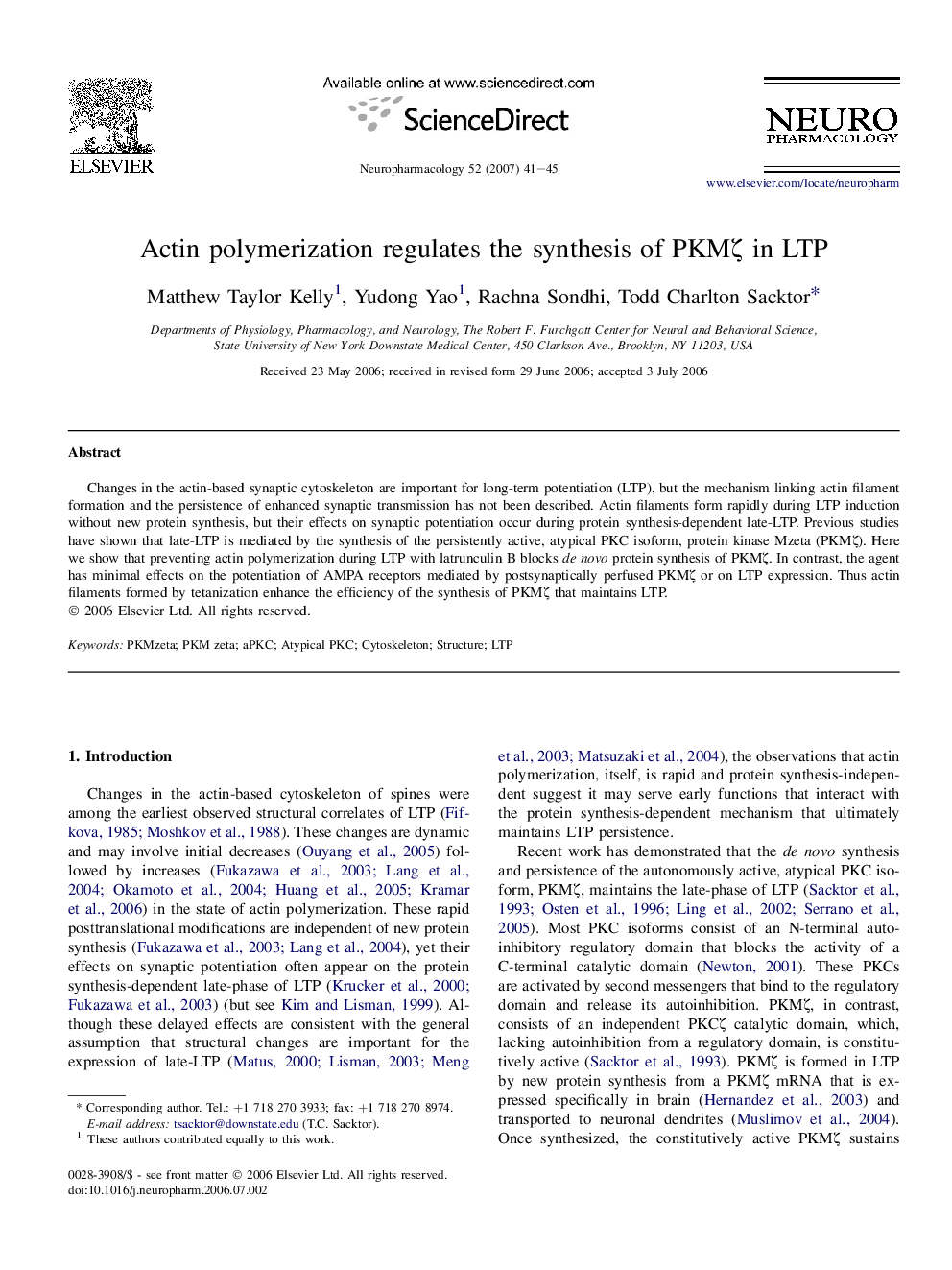| Article ID | Journal | Published Year | Pages | File Type |
|---|---|---|---|---|
| 2494969 | Neuropharmacology | 2007 | 5 Pages |
Changes in the actin-based synaptic cytoskeleton are important for long-term potentiation (LTP), but the mechanism linking actin filament formation and the persistence of enhanced synaptic transmission has not been described. Actin filaments form rapidly during LTP induction without new protein synthesis, but their effects on synaptic potentiation occur during protein synthesis-dependent late-LTP. Previous studies have shown that late-LTP is mediated by the synthesis of the persistently active, atypical PKC isoform, protein kinase Mzeta (PKMζ). Here we show that preventing actin polymerization during LTP with latrunculin B blocks de novo protein synthesis of PKMζ. In contrast, the agent has minimal effects on the potentiation of AMPA receptors mediated by postsynaptically perfused PKMζ or on LTP expression. Thus actin filaments formed by tetanization enhance the efficiency of the synthesis of PKMζ that maintains LTP.
